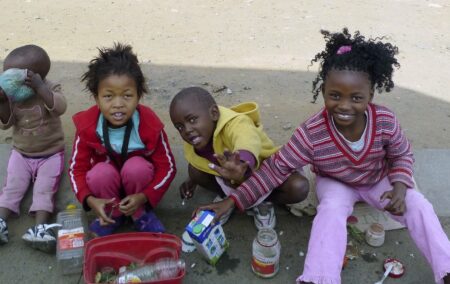When a person decides to have up to 11 children while not working, logic demands that this person should shoulder the burden of providing for the children financially. The fact that in South Africa a person chooses to have many children and the taxpayer must be the one to pay for their upkeep defies logic. It is abusive to the men and women who wake up every day to earn a living while some other people choose to wake up and engage in as much unprotected sex as they please.
What I am writing about is not a fairytale, but rather the reality of what is occurring in South Africa. I am aware of a woman in Burgersfort, Limpopo, who has 11 children, is unemployed, has never worked, and is raising all of them on child subsidies from our state. These are mostly paid by hard-working South Africans through our nation’s tax system. The same narrative applies to many other people I know who have as many as eight children; they do not work, have never worked, and own no businesses. Taxpayers are their milking cows.
At some point, as a country, we need to have a candid discussion about this issue and others like it, including the fact that the National Student Financial Aid Scheme (NSFAS) uses taxpayer money to pay for higher education degrees that are obviously useless for the South African labour market. Taxpayers must eventually take a stand against the wasteful spending of tax rands on credentials that serve no purpose other than to collect dust. There is little demand for them in the labour market, either because there are already too many of them available or because they are simply of little use.
It is not surprising that NSFAS is a failing institution, because it cannot recoup its investment by supporting students who ought to be attending school, finding employment, and paying back what is owed so that it can support the following cohort of students. The main reason for this is that the project is subsidising skills that are not in demand. This means that when graduates from higher education institutions return from their studies without jobs, they are unable to pay back NSFAS so that it can assist the following group of students in need.
Whether it makes sense for the government to continue financing someone who has as many as 11 children, or whether a cap should be established on the number of children the government will assist with social handouts, is a question that our policymakers need to take very seriously.
Obviously, the poor are also people, so it cannot be suggested that they should not have children at all just because they cannot afford to raise them. However, it would make sense for the government to only provide financial support for, say, a person’s first two children. If poor people decide to have more than two children, the responsibility for caring for the children should unquestionably fall on them rather than the taxpayer who is primarily contributing to the government’s coffers. After all, it would still be a wonderful compassionate action if the taxpayer continued to pay for the first two kids since, logically speaking, parents should be responsible for caring for their own kids.
Given that money does not just fall out of the sky and that our current tax structure is already killing the taxpayer, it is crucial for us as a nation to have these difficult debates. In South Africa, the taxpayer base is actually already contracting at a rapid rate, while the number of grant recipients and our grant-making infrastructure are both expanding quickly.
When it comes to our grants and funding mechanisms as a country, we are undoubtedly moving on precarious ground. Furthermore, we are making too many citizens dependent on the government for a living when, in reality, those who are fit should be depending on the work of their own hands and minds, and not the government. We have too many grants and funding programmes, too high taxes, and it is all simply unsustainable.
It is past time for policymakers to re-evaluate a lot of things, and it is also past time for taxpayers to protest about the misuse of their hard-earned money by the government.
The views of the writer are not necessarily the views of the Daily Friend or the IRR.
If you like what you have just read, support the Daily Friend.

